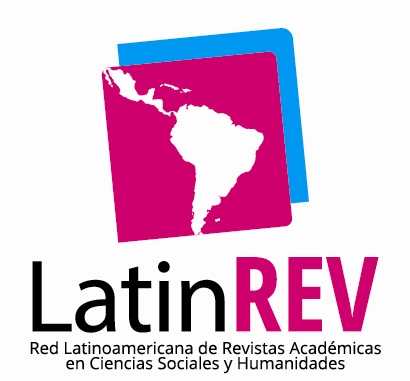Cultural Capital and Identity Recognition of Traditional Peoples in Brazil: Analysis of Public Policies and Sociological Institutionalism
DOI:
https://doi.org/10.63207/n6p6fr81Abstract
Brazil stands out for its biodiversity of fauna, flora and, especially, ethnic-cultural issues, highlighting the Cultural Capital of Traditional Villages and Communities – PCTs. The PCTs, as of Decree 6,040/2007, are configured as groups that are organized and recognized culturally and socially using their own territory for the organization of their social, cultural, religious, economic, etc. values. In this way, the objective is to analyze cultural capital by means of the main cultural public policies aimed at PCTs in Brazil based on the Sociological Institutionalism approach. Below, the question is: how do Brazilian public policies work on the process of valorization and cultural reconhecimento of Traditional Peoples and Communities? As such, it is a qualitative, documentary and bibliographical research, with an interdisciplinary review of knowledge and based on Bardin's discourse analysis (1977). The analyzed data confirm that the cultural capital of the PCTs is parked and, at times, ignored by the point of the concrete rights already provided for in legal diplomas, observing that in light of neoinstitutionalism of the Sociological type, the State institution has failed to reaffirm its identity, ethics and culture of these specific groups.
Downloads
References
Almeida, A. W. B. (2007). Apresentação. In J. Shiraishi Neto (Org.), Direito dos povos e das comunidades tradicionais do Brasil: declarações, convenções internacionais e dispositivos jurídicos definidores de uma política nacional (pp. 9–17). Manaus: UEA.
Barretto, H. T. (2006). Populações tradicionais: introdução à crítica da ecologia política de uma noção. In C. Adams, R. Murrieta, & W. Neves (Orgs.), Sociedades caboclas amazônicas: modernidade e invisibilidade (pp. 109–143). São Paulo: Annablume.
Botelho, I. (2007). Políticas culturais: discutindo pressupostos. In G. Nussbaumer (Org.), Teorias e políticas da cultura: visões multidisciplinares (pp. 171–180). Salvador: Edufba.
Bourdieu, P. (1979). La distinction: critique sociale du jugement. Paris: Ed. De Minuit.
Bourdieu, P. (1980). O poder simbólico. Rio de Janeiro: Bertrand Brasil.
Brasil. (1988). Constituição da República Federativa do Brasil. Brasília, DF: Planalto.
Brasil. (2007). Decreto n. 6.040, de 7 de fevereiro de 2007: institui a Política Nacional de Desenvolvimento Sustentável dos Povos e Comunidades Tradicionais. Disponível em: http://www.planalto.gov.br/ccivil_03/_ato2007-2010/2007/decreto/d6040.htm
Brasil. (2010). Lei Federal 12.343, de 2 de dezembro de 2010: institui o Plano Nacional de Cultura - PNC, cria o Sistema de Informações e Indicadores Culturais - SNIIC. Disponível em: http://www.planalto.gov.br/ccivil_03/_ato2007-2010/2010/lei/l12343.htm
Brasil. Câmara dos Deputados. (2019). Projeto de Lei 4741/2019: estabelece diretrizes e objetivos para as políticas públicas de desenvolvimento sustentável dos povos e comunidades tradicionais. Disponível em: https://www.camara.leg.br/proposicoesWeb/fichadetramitacao?idProposicao=2217561
Calegare, M. G. A. (2010). Contribuições da Psicologia Social ao estudo de uma comunidade ribeirinha no Alto Solimões: redes comunitárias e identidades coletivas (Tese de doutorado). Universidade de São Paulo, São Paulo, SP, Brasil. https://doi.org/10.11606/T.47.2010.tde-03052010-163111
Calegare, M. G. A., Higuchi, M. I. G., & Bruno, A. C. S. (2014). Povos e comunidades tradicionais: das áreas protegidas à visibilidade política de grupos sociais portadores de identidade étnica e coletiva. Ambiente & Sociedade, 17(3), 115–134. https://doi.org/10.1590/S1414-753X2014000300008
Calegare, M. G. A., Higuchi, M. I. G., & Forsberg, S. S. (2013). Desafios metodológicos ao estudo de comunidades ribeirinhas amazônicas. Psicologia & Sociedade, 25(3), 571–580. https://doi.org/10.1590/S0102-7182201300030001
Castello, J. (2002). Cultura. In B. Lamounier & R. Figueiredo (Orgs.), A Era FHC: um balanço (pp. 627–656). São Paulo: Cultura.
Costa, C. (2010). Sociologia: introdução à ciência da sociedade. São Paulo: Moderna.
Diegues, A. C. (2008). O mito moderno da natureza intocada (6ª ed.). São Paulo: Hucitec.
Elias, N. (1980). Introdução à sociologia. São Paulo: Edições 70.
Ferejohn, J., & Pasquino, P. (2001). A teoria da escolha racional na ciência política: conceitos de racionalidade em teoria política. Revista Brasileira de Ciências Sociais, 16(45), 1–24.
Geertz, C. (1978). Descrição densa: por uma teoria interpretativa da cultura. In C. Geertz, A Interpretação das Culturas (pp. 3–30). Rio de Janeiro: Jorge Zahar.
Gerhardt, T. E., & Silveira, D. T. (Orgs.). (2009). Métodos de Pesquisa (1ª ed.). Porto Alegre: Editora da UFRGS.
Gil, A. C. (1999). Métodos e técnicas de pesquisa social. São Paulo: Atlas.
Hall, P. A., & Taylor, R. C. R. (2003). As três versões do neo-institucionalismo. Lua Nova, (58), 193–223.
Hall, S. (1996). Identidade cultural e diáspora. Revista do Patrimônio Histórico e Artístico Nacional, (24), 68–74.
Hall, S. (1997). Identidades culturais na pós-modernidade. Rio de Janeiro: DP&.
Immergut, E. M. (1998). The theoretical core of the new institutionalism. Politics & Society, 26(1), 5–34.
Kelsen, H. (2009). Teoria pura do direito (8ª ed., J. B. Machado, Trad.). São Paulo: WMF Martins Fontes.
McGuigan, J. (1996). Culture and the public sphere. Londres e Nova York: Routledge.
Minayo, M. C. S. (1993). O desafio do conhecimento. São Paulo: Hucitec.
Nascimento, E. O. do. (2009). Os novos institucionalismos na ciência política contemporânea e o problema da integração teórica. Revista Brasileira de Ciência Política, (1), 95–121.
Observatório Justiça e Conservação. (2020). Efeitos da pandemia não perdoam indígenas nem comunidades tradicionais brasileiras. Disponível em: https://www.justicaeco.com.br/efeitos-da-pandemia-nao-perdoam-indigenas-nem-comunidades-tradicionais-brasileiras/
Organização Internacional do Trabalho – OIT. (2011). Convenção n° 169 sobre povos indígenas e tribais e Resolução referente à ação da OIT / Organização Internacional do Trabalho (v. 1). Brasília: OIT. Disponível em: http://portal.iphan.gov.br/uploads/ckfinder/arquivos/Convencao_169_OIT.pdf-Brasilia
Quivy, R., & Campenhoudt, L. V. (1995). Manual de Investigação em Ciências Sociais. Lisboa: Gradiva.
Rua, M. G. (1998). Análise de políticas públicas: conceitos básicos. In M. G. Rua & M. I. V. Carvalho (Eds.), O estudo da política: tópicos selecionados (pp. 231–261). Brasília, DF: Paralelo 15.
Saraiva, E. (2006). O conceito de política pública. In E. Saraiva & E. Ferrarezi (Eds.), Políticas Públicas: coletânea (v. 1). Brasília: ENAP.
Silva, C. L. da (Org.). (2012). Políticas Públicas e desenvolvimento local: instrumentos e proposições de análise para o Brasil. Petrópolis, RJ: Vozes.
Silva, J. A. (1999). Aplicabilidade das normas constitucionais (3ª ed.). Malheiros: São Paulo.
Silva, R. M. D. (2012a). Políticas culturais em cidades turísticas brasileiras: um estudo sobre as técnicas de vida contemporâneas (Tese de doutorado). Universidade do Vale do Rio dos Sinos, São Leopoldo, RS.
Souza, C. (2012). Estado da arte da pesquisa em políticas públicas. In G. Hochman, M. Arretche, & E. Marques (Orgs.), Políticas Públicas no Brasil (3ª reimpressão, pp. 15–32). Rio de Janeiro: Editora Fiocruz.
Tönnies, F. (1947). Comunidad y sociedad. Buenos Aires, Argentina: Losada.
Vianna, L. P. (2008). De invisíveis a protagonistas: populações tradicionais e unidades de conservação. São Paulo: Annablume; FAPsESP.

Downloads
Published
Versions
- 2025-12-04 (2)
- 2025-07-24 (1)
Issue
Section
License
Copyright (c) 2025 Giliarde Gama, Nilton Marques de Oliveira, Monica Aparecida da Rocha Silva, Lucas Braga da Silva

This work is licensed under a Creative Commons Attribution-NonCommercial-ShareAlike 4.0 International License.
Usted es libre de:
- Compartir — copiar y redistribuir el material en cualquier medio o formato
- Adaptar — remezclar, transformar y construir a partir del material
- La licenciante no puede revocar estas libertades en tanto usted siga los términos de la licencia
Bajo los siguientes términos:
- Atribución — Usted debe dar crédito de manera adecuada , brindar un enlace a la licencia, e indicar si se han realizado cambios . Puede hacerlo en cualquier forma razonable, pero no de forma tal que sugiera que usted o su uso tienen el apoyo de la licenciante.
- NoComercial — Usted no puede hacer uso del material con propósitos comerciales .
- CompartirIgual — Si remezcla, transforma o crea a partir del material, debe distribuir su contribución bajo la la misma licencia del original.
- No hay restricciones adicionales — No puede aplicar términos legales ni medidas tecnológicas que restrinjan legalmente a otras a hacer cualquier uso permitido por la licencia.







